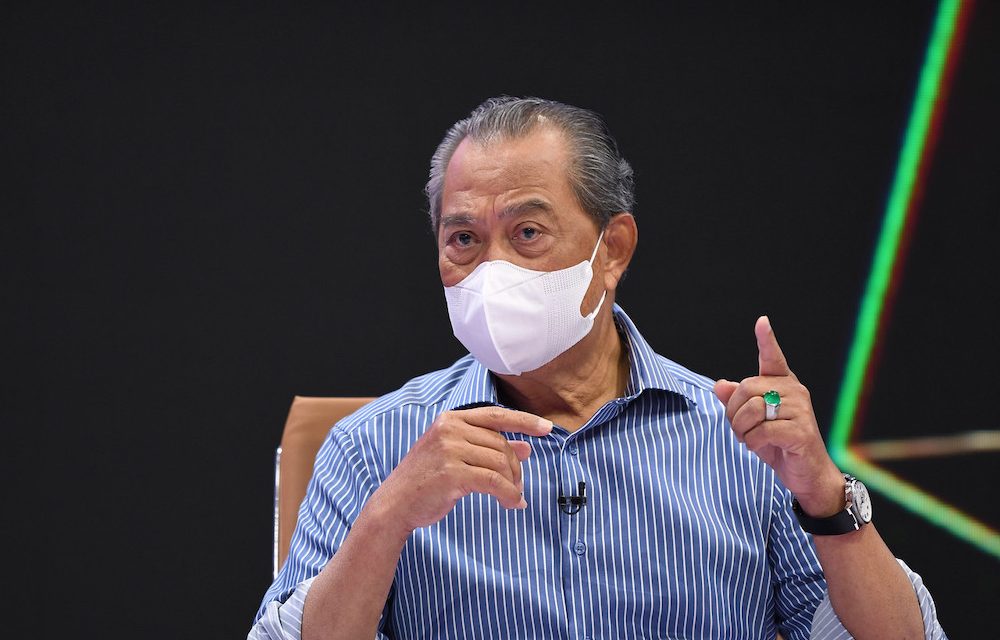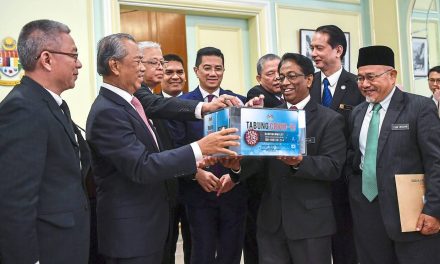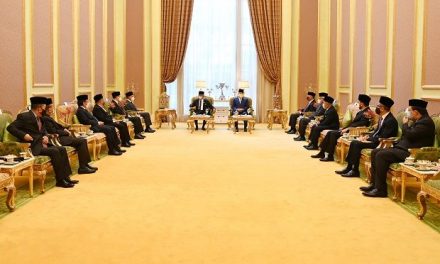PM Muhyiddin says no full lockdown as MCO 1.0 nearly led to economic collapse
Prime Minister Tan Sri Muhyiddin Yassin defended the government’s decision of not implementing a full-scale lockdown as the first movement control order (MCO) implemented on March 18 last year almost led to a total economic collapse. “At the time we had no prior experience (in dealing with a pandemic) so we closed down, even as the cases were not yet widespread. But the economic impact was considerable, verging on the point of collapse,” Muhyiddin said, adding that the economy almost collapsed as it cost approximately RM2.4 billion a day during MCO 1.0. Were a full-scale lockdown to be implemented like before, the prime minister said RM340 billion would certainly be insufficient to stimulate the economy again. “So we learned from this, we cannot close everything altogether. Life is important, and I do not wish for the national economy to collapse,” he said. This is the main reason for the government’s recent decision, which Muhyiddin said was made based on the current situation and trends. (Malay Mail)
MCO 3.0: Additional restrictions to reduce movement
Additional restrictions to tighten the standard operating procedures (SOPs) of the Movement Control Order (MCO) 3.0 will be implemented through two strategies, namely work-from-home (WFH) directive and limiting business operating hours effective May 25 for the entire Peninsula and Labuan. Senior Minister (Security Cluster) Datuk Seri Ismail Sabri Yaakob said it is aimed at reducing the movement of people and thus preventing a more serious spread of Covid-19. He said the work-from-home (WFH) directive covered 80% of civil servants and 40% in the private sector. Public transport such as LRT and buses are also limited to only 50% of passenger capacity and the frequency will also be reduced. Business operating hours for shopping malls, convenience stores, stalls and laundries are limited from 8am to 8pm. Ismail Sabri said the Hotspots Identification for Dynamic Engagement (HIDE) early warning system will continue to be used and locations identified as high risk will be closed immediately. He said in line with the additional restrictions, the enforcement and number of roadblocks will be increased to monitor compliance with SOPs. All the SOPs can be referred to on the websites of the National Security Council (MKN), the Ministry of International Trade and Industry (MITI) and related ministries, he said. (The Edge)
SOP not set in stone, says PM
The National Security Council’s standard operating procedures (SOPs) for the ongoing movement control order are not static but will change depending on the situation on the ground, says the Prime Minister. The SOPs, said Tan Sri Muhyiddin Yassin, have to change in accordance with the Covid-19 situation at any one time. “They are not static. (They are) dynamic. We have to look at the situation and this requires adjustments to deal with different situations… I apologise if there are those who are confused,” he said, adding that the National Security Council (NSC) does not come up with any SOP unilaterally but after discussions with relevant parties. Meanwhile, the Prime Minister said state governments did not have the authority to change the SOP as this power rests with the Federal Government. On SOP violations, he said any punitive action taken must be based on the law. Authorities have the power to arrest offenders or impose RM10,00 fines precisely because the SOP has been gazetted. “Please stay at home and tell others to do the same because any effort will not work if the people do not adhere to the SOP,” he added. (The Star)
PM: Immunisation programme will improve economy, expects herd immunity by year-end
The National Covid-19 Immunisation Programme will improve public sentiment and contribute to the improvement of economic activities, says Prime Minister Tan Sri Muhyiddin Yassin. “We are targeting for the people to be vaccinated by the end of this year, with a 80% target of herd immunity. When we have protection, the economy will hopefully improve in 2022,” he said. As for the tourism sector, which has been badly affected by the pandemic, Muhyiddin said that he expected the industry to heal in three to four years, saying there were initiatives by the Federal Government. He said the government has also begun negotiations for the arrival of Chinese and Asean tourists through a green lane when the situation allowed. Muhyiddin also said the government had no objections if there were those who wanted to buy their own Covid-19 vaccines, but this would have to get approval from the National Pharmaceutical Regulatory Agency (NPRA). He said the government was also working on supplying vaccines to hospitals and the private sector to hasten the process. “There will not be any charge because it is the responsibility of the government. We can ask the hospitals to charge RM14 for one jab while the vaccine is free,” he said. (The Star)
Malaysians encouraged to wear double masks, face shields in crowded areas
Malaysians are encouraged to wear double face masks and a face shield in crowded and high-risk public areas, such as hospitals. Health director-general Tan Sri Dr Noor Hisham Abdullah said wearing two face masks could filter up to 95% of the Covid-19 virus, although the government has not made it compulsory for now. “If you are in a crowded or high-risk area, it is highly advisable to wear double face masks and also a face shield,” he said. Dr Noor Hisham said there was a report recently stating that the Covid-19 virus could be airborne and not only spread by droplets. Ismail Sabri, meanwhile, stressed that the wearing of face shields and niqab without a face mask is an offence under the Prevention and Control of Infectious Diseases Act 1988 (Act 342). (The Edge)






